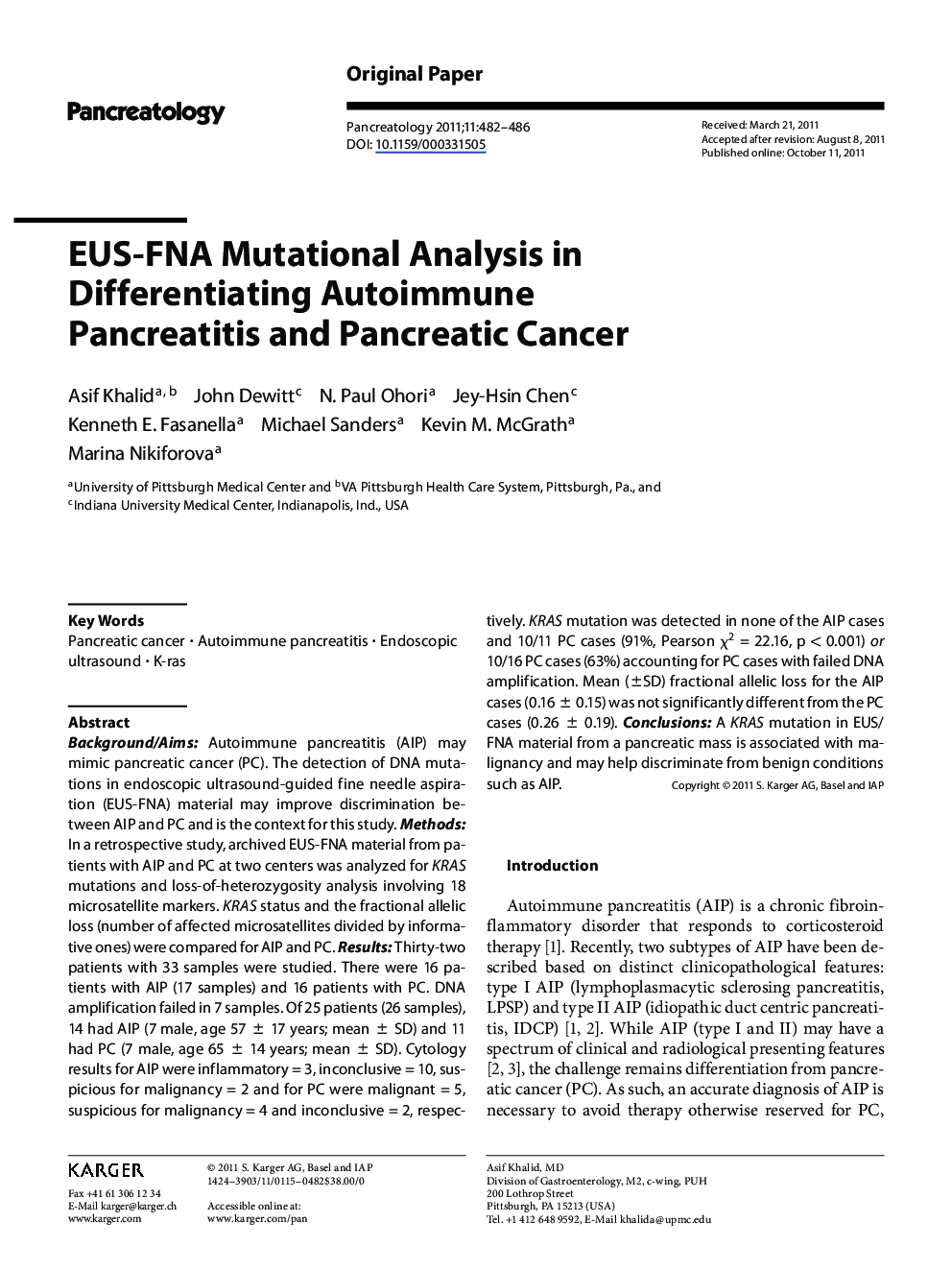| Article ID | Journal | Published Year | Pages | File Type |
|---|---|---|---|---|
| 3318128 | Pancreatology | 2011 | 5 Pages |
Abstract
Background/Aims: Autoimmune pancreatitis (AIP) may mimic pancreatic cancer (PC). The detection of DNA mutations in endoscopic ultrasound-guided fine needle aspiration (EUS-FNA) material may improve discrimination between AIP and PC and is the context for this study. Methods: In a retrospective study, archived EUS-FNA material from patients with AIP and PC at two centers was analyzed for KRAS mutations and loss-of-heterozygosity analysis involving 18 microsatellite markers. KRAS status and the fractional allelic loss (number of affected microsatellites divided by informative ones) were compared for AIP and PC. Results:Thirty-two patients with 33 samples were studied. There were 16 patients with AIP (17 samples) and 16 patients with PC. DNA amplification failed in 7 samples. Of 25 patients (26 samples), 14 had AIP (7 male, age 57 ± 17 years; mean ± SD) and 11 had PC (7 male, age 65 ± 14 years; mean ± SD). Cytology results for AIP were inflammatory = 3, inconclusive = 10, suspicious for malignancy = 2 and for PC were malignant = 5, suspicious for malignancy = 4 and inconclusive = 2, respectively. KRAS mutation was detected in none of the AIP cases and 10/11 PC cases (91%, Pearson Ï2 = 22.16, p < 0.001) or 10/16 PC cases (63%) accounting for PC cases with failed DNA amplification. Mean (±SD) fractional allelic loss for the AIP cases(0.16 ± O.15) was not significantly different from the PC cases (0.26 ± 0.19). Conclusions: A KRAS mutation in EUS/ FNA material from a pancreatic mass is associated with malignancy and may help discriminate from benign conditions Such as AIP.
Related Topics
Health Sciences
Medicine and Dentistry
Gastroenterology
Authors
Asif Khalid, John Dewitt, N. Paul Ohori, Jey-Hsin Chen, Kenneth E. Fasanella, Michael Sanders, Kevin M. McGrath, Marina Nikiforova,
